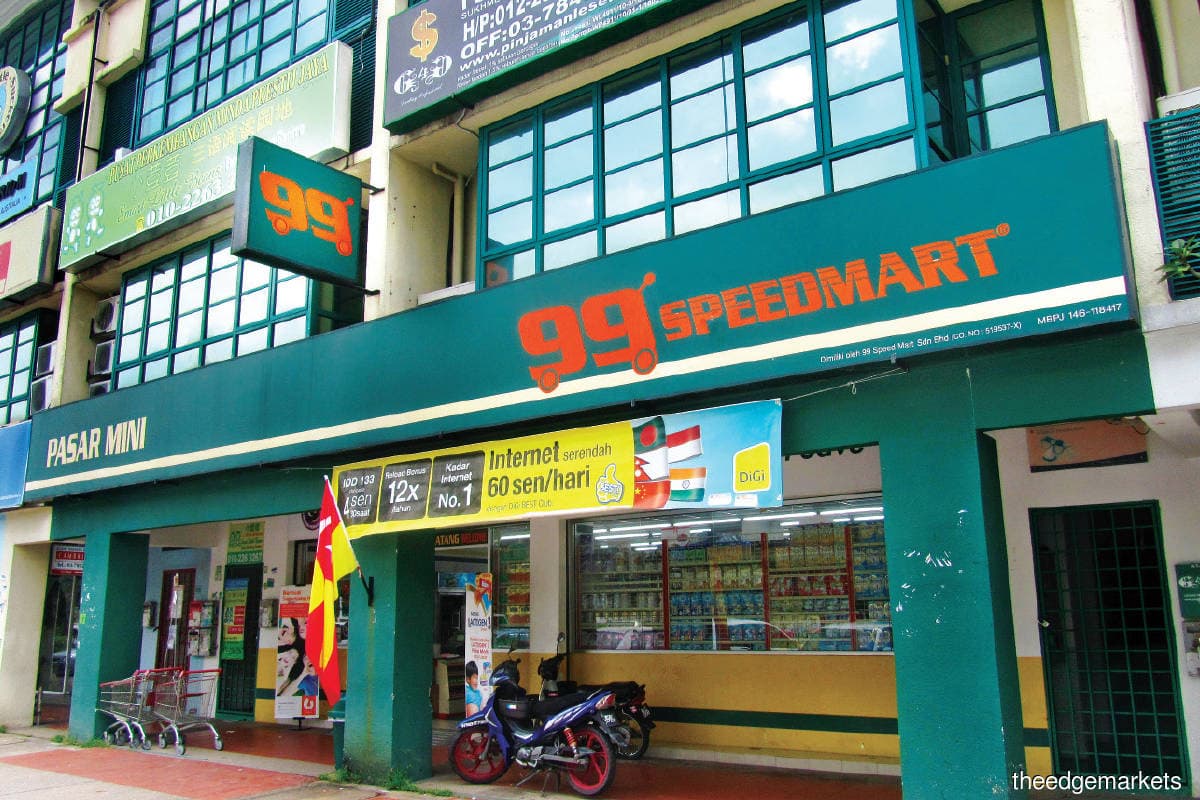
This article first appeared in The Edge Malaysia Weekly on May 3, 2021 - May 9, 2021
HAVING achieved a record performance in 2020, two established home-grown grocery retailers, 99 Speedmart and KK Super Mart, will step up expansion plans this year. 99 Speed Mart Sdn Bhd plans to open an average of 25 stores a month while KK Supermart & Superstore Sdn Bhd is planning on some 10 stores a month.
“99 Speedmart will reach 1,913 outlets before Hari Raya and we will continue to expand nationwide. Our target is to reach 2,100 outlets by the end of the year,” 99 Speedmart founder Lee Thiam Wah says. The retailer plans to add more stores in the northern states and on the East Coast.
In a brief interview with The Edge, Lee says the grocery retailer’s store expansion last year had slowed down because of the Movement Control Order and travel restrictions following the Covid-19 outbreak. However, that is about to change. “This year, we are going to catch up a bit [on store openings].”
Notwithstanding the delay, 99 Speedmart experienced its biggest jump in sales and net profit last year. Lee attributes this to consumers being concerned about visiting big shopping malls during the pandemic and preferring to shop at the store nearest home instead. Industry sources say 99 Speedmart is the grocery market leader, commanding a tenth of the market.
Is the grocery space getting crowded? Lee agrees that competition has become stiffer. “It is due to the grocery market becoming very versatile, as well as the rapid growth of the online platform,” he opines.
KK Group of Companies founder and group executive chairman Datuk Seri Dr K K Chai is ambivalent about the entry of new players as he thinks it will ultimately come down to the survival of the fittest.
“The grocery retail market is huge enough for everyone to come in. However, long-term sustainability may be a struggle. It is about who can survive.”
The retailer currently operates 526 outlets, predominantly in the Klang Valley. “Our plan is to open two to three stores a week or an average of 10 outlets each month,” he says, pointing to planned new outlets in Negeri Sembilan, Johor and Melaka.
A search on the Companies Commission of Malaysia’s website shows KK Supermart & Superstore’s net profit jumped by an impressive 87.05% to RM33.76 million in the financial year ended June 30, 2020 from RM18.05 million in FY2019. This was achieved on the back of a 16% rise in revenue to RM1.08 billion from RM930 million in the previous year.
Chua points out that KK Super Mart could have performed better had the stores been allowed to operate 24 hours. Shorter operating hours also resulted in same store growth remaining flat or being marginal.
Repeating last year’s performance in the current year will be easy, according to him, but achieving the same momentum will be tough. He projects net profit to grow by between 10% and 20% — unless the outlets are allowed to operate 24 hours once again, in which case the increase will be bigger.
Savills Malaysia associate director and head of retail services Murli Menon says of the two retailers’ performance: “Their strengths are greater reach and penetration, and extremely strong focus on value. Given that they are much smaller than typical grocery supermarkets, they are able to reach into pockets of catchments that are beyond the reach of typical supermarkets — that, combined with ‘value pricing’, enable them to continue to grow.”
Retail Group Malaysia managing director Tan Hai Hsin observes that other players have also turned in an improved performance. “Many small grocery stores have been performing well during this period.”
“During the last six to eight years, mini-market operators such as KK Super Mart and 99 Speedmart as well as convenience store operators such as 7-Eleven, MyNews and FamilyMart have been expanding aggressively in all parts of Malaysia. This led to high growth of this subsector in 2020,” he says.
Other factors contributing to the performance include shoppers preferring to stay away from crowded supermarkets and hypermarkets during the pandemic, and the fatigue of shopping in large grocery stores when only small quantities are needed.
Save by subscribing to us for your print and/or digital copy.
P/S: The Edge is also available on Apple's AppStore and Androids' Google Play.
